Empowerment & Environment : Slum Women Convert 300 Kg of Flower Waste Into Incense Sticks Each Week
Green wave converts almost 300 kg to 400 kg of flowers every week into 100 kg to 150 kg of incense sticks giving livelihood to nearly 50-60 women.
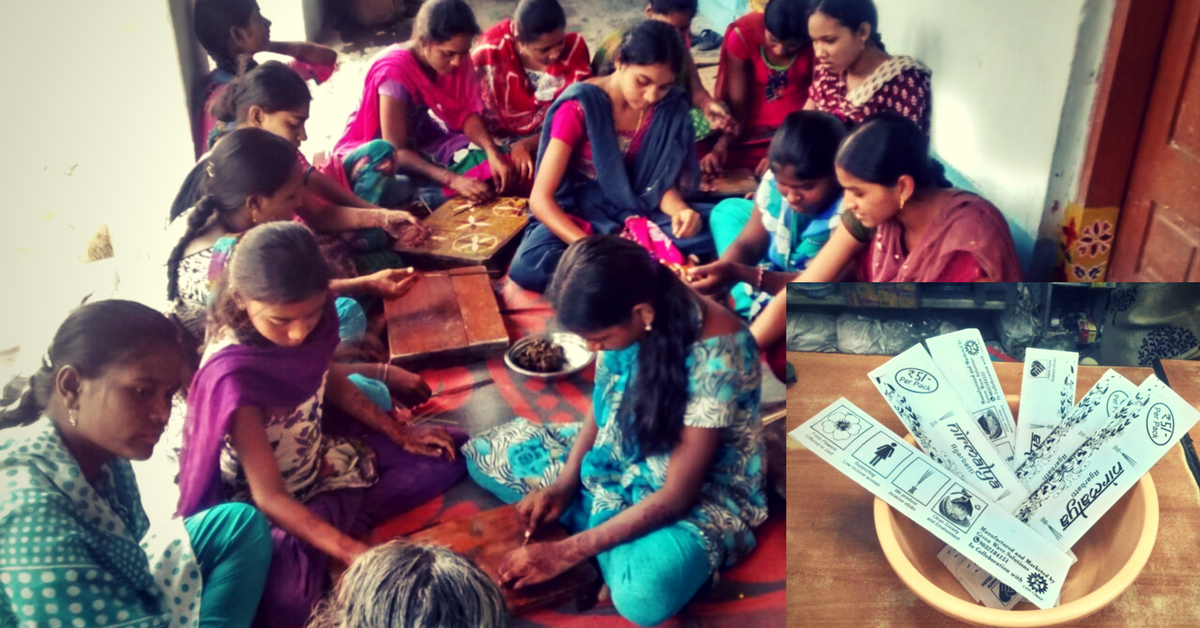
Little things seem nothing, but they give peace, like those meadow flowers which individually seem odorless but all together perfume the air.
-Georges Bernanos
Two brothers have actually put together all the waste flowers offered at temples and mosques and made incense sticks out of them, which is also giving livelihood to women from economically deprived sections of the society.
After finishing his engineering in biotechnology from NIIT Durgapur, Nikhil Gampa joined a research project to make paper from mushrooms. Though this was a great idea and would have solved the problem of cutting trees for paper, the technology never reached the common man.
“There was a huge gap between what was being made and what the consumer actually needed. I wanted to fill that gap,” says Nikhil.
Thus, Nikhil decided to pursue his masters in social entrepreneurship from TISS, Mumbai. As a part of his course, he had to visit one of the remotest villages in Jhabua district of Madhya Pradesh.
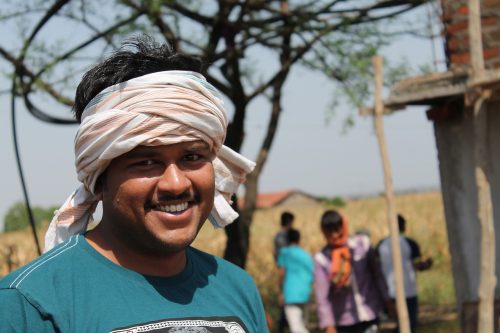
The team would interact with the villagers in the day and had to sleep in the village temple in the night. During their stay Nikhil noticed that though all other waste was dumped elsewhere, the flower waste offered at temples was considered auspicious and hence it was either put into the nearby water bodies or are disposed under a tree. Many would also put it into poly bags and throw it under the trees or bushes. Nikhil also suffered from an extreme case of malaria after staying in this temple for four nights. He then took it upon him to make better use of these flowers and save the environment.
He started studying waste management and came to know that flowers contain carbon, which can be used to make incense sticks.
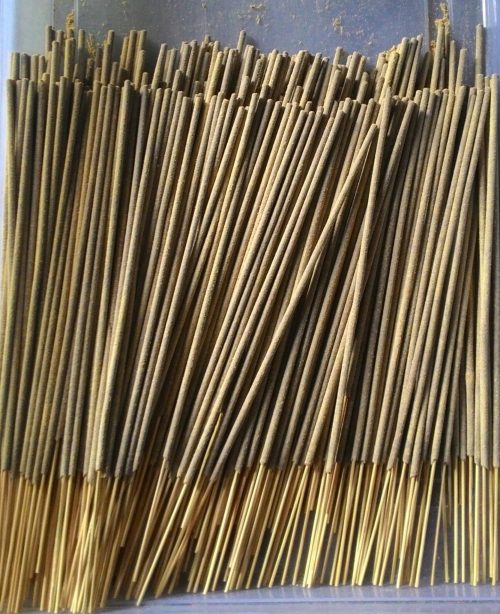
The incense sticks made by the current manufacturing chains uses coal as raw material for the carbon content, which is required for burning. Coal has carbon in its ground state and the organic matter in the dried flowers has Carbon in the +3 oxidation state. For burning, the oxidation state is to be changed to +4, which is easier and requires less energy in the organic case of flowers. Also, the emission of carbon dioxide from the burning of incense sticks is reduced to a great extent due to this change in the raw material, making it more energy efficient.
After his initial research, Nikhil talked about his idea to his brother, Preetham, who is a student of IIT Kanpur.
With the help of Preetham’s professors at IIT Kanpur and few scientists at CISR Kanpur, the duo came up with a perfect formula of converting waste flowers into incense sticks and thus started their initiative ‘Green Wave’.
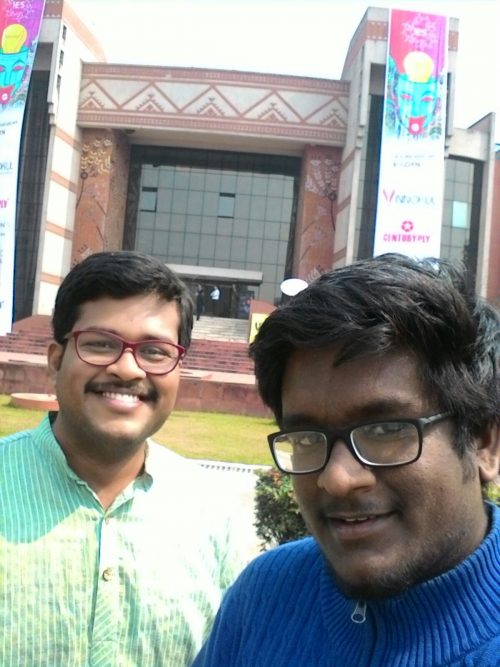
“We also tried making compost out of these flowers initially, however, the demand of compost was very low especially in rural areas, whereas incense sticks were used in every household in India,” says Nikhil.
The next step was to convince temples and mosques to allow them to take away the flowers. Many priests did not agree to the idea as it is a common belief to offer fresh things to God, however here the already offered flowers were going to be reoffered as incense sticks. This religious argument was tackled by another religious belief of reincarnation.
“We convinced them by giving them the theory of reincarnation. Almost all the religions believe in it and recycling these flowers into incense sticks was nothing but giving them a new life altogether,” says Preetham.
After many visits and lot of brainstorming, the duo succeeded in convincing two temples in Kanpur. They then found a group of five women who were ready to manufacture the sticks.
The entire production chain was handled by these women. One of them would collect the flowers, two would manufacture and two of them would be responsible for packaging and selling.
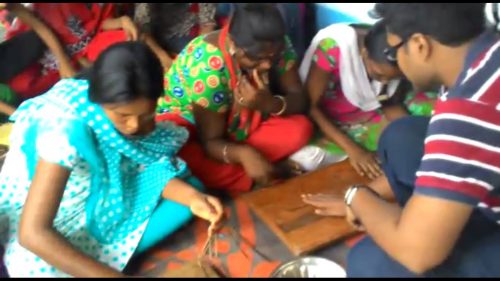
After the initial hurdles, once the first experiment was successful more and more temples started showing interest in the startup. The temple authorities also felt that as needy women were getting extra income from this, this would bring good will and more positivity to the temples.
After being successful in their endeavour in Kanpur, the Gampa brothers decided to bring their initiative to Mumbai. Here they employed women from slums of Dharavi, Govandi-Mankhurd. At the temples that they have tied up with, they have placed special dustbins where the flowers are collected. These are emptied once every two days by the women working with Green Wave. The flowers are then segregated and set out to dry. The dried flowers are powdered and mixed with binding powder and saw dust and then rolled over with bamboo sticks to make the final product.
Today, Green wave converts almost 300 kg to 400 kg of flowers every week into 100 kg to 150 kg of incense sticks giving livelihood to nearly 50-60 women in Mumbai, Warangal, Hyderabad and Kanpur. The incense sticks are sold with the brand name, ‘Nirmalya’.
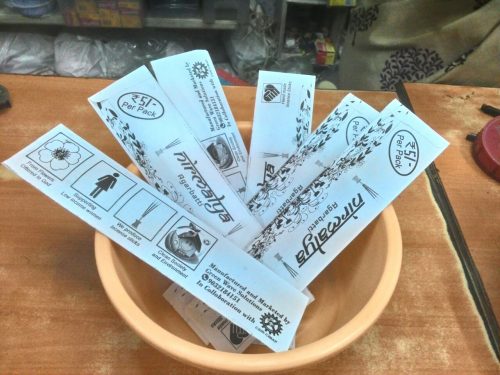
The women earn almost Rs. 150 to Rs. 200 by working for three to four hours. Green wave has also started its pilot project of making Holi colours from these flowers. In another three months, they will be ready with a prototype of a small vertical farm for urban space where flowers used in individual households can be used as compost.
“In a religion-centric society like ours, there are a lot of places of worship where tons of flowers are collected and offered to god, with no existing proper system of their use after this process is over. These flowers later on contribute in the ever increasing waste piles of our cities proving to be a bane for the already deteriorating waste management system of our municipal bodies. This venture will enable women as environmental change makers and also earn income respectfully,” says Nikhil.
To know more about Green Wave log on to their website or their Facebook Page . You can also call on 097694 12923 to place your orders.
Like this story? Or have something to share? Write to us: [email protected], or connect with us on Facebook and Twitter.
NEW: Click here to get positive news on WhatsApp!
If you found our stories insightful, informative, or even just enjoyable, we invite you to consider making a voluntary payment to support the work we do at The Better India. Your contribution helps us continue producing quality content that educates, inspires, and drives positive change.
Choose one of the payment options below for your contribution-
By paying for the stories you value, you directly contribute to sustaining our efforts focused on making a difference in the world. Together, let’s ensure that impactful stories continue to be told and shared, enriching lives and communities alike.
Thank you for your support. Here are some frequently asked questions you might find helpful to know why you are contributing?


This story made me
-
97
-
121
-
89
-
167











